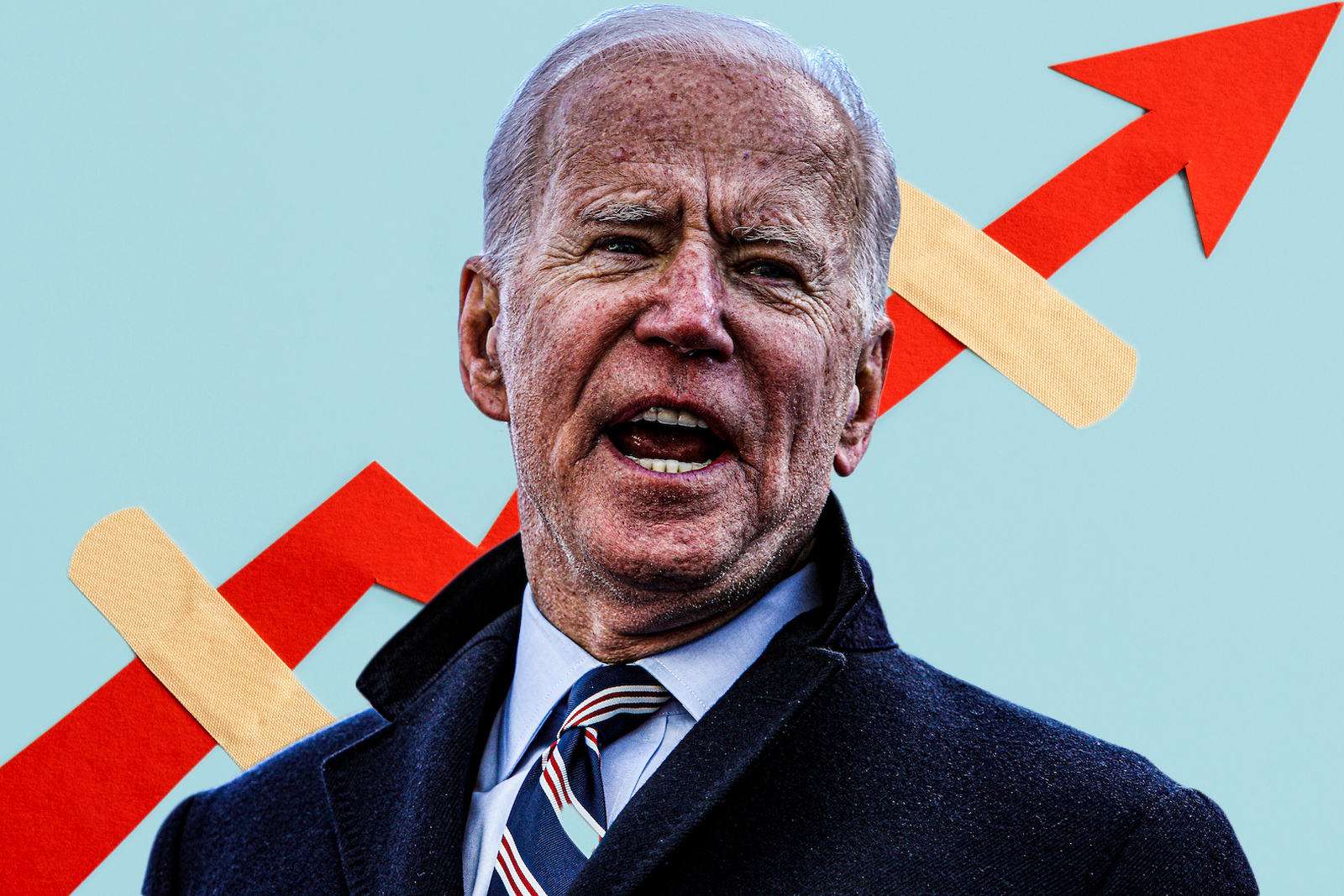
Biden Inches Toward the Right Move on Tariffs—for the Wrong Reasons
Staring down the double barrel of an economic recession and an inflation rate at its highest level in 40 years, President Biden is flirting with the idea of nixing a fraction of former President Trump’s trade tariffs on Chinese goods. Whatever the outcome of Biden’s tariff tap-dance, it’s unlikely to have any real effect on consumer prices. It only looks and sounds like a powerful move, in much the same way that tariffs themselves are more of a flex than an actual squeeze.
Tariffs don’t work. So it’s good that the president might soon lift $10 billion worth of the $370 billion tariff package his predecessor levied against Chinese imports. But while he’s at it, he ought to replace them with policies that actually combat the harms being executed by the Chinese Communist Party — and allow the U.S. to reclaim its competitive advantage over CCP-backed businesses.
According to Politico, the tariffs most likely to go affect a handful of consumer items, like bicycles. Their removal would also accompany a measure allowing select businesses to “win exemptions” from other remaining Chinese tariffs.
Just which businesses might expect to enjoy a state-sanctioned discount on imports while their competitors watch their costs climb is unclear — but it’s worth noting that special carve-outs hardly sound like the level playing field the administration keeps promising its policies will promote.
Buzz over a possible cutback to the Trump-era tariffs is stirring the ire of many China hawks, some of whom fear that the reversal “would remove salutary pressure on Beijing to stop abusing the trading system” and “resume the leakage of jobs and capital to China…while bolstering the corrupt and authoritarian CCP regime.”
But two things can be true at once: The Chinese Communist Party is a problem for the U.S. and the world — and tariffs aren’t the solution.
While tariffs are a pet virtue-signaling device for many politicians, the ones against China have done little to quell the CCP’s myriad abuses of the global trading system, American intellectual property, and private consumer data.
For one thing, the CCP continues to exploit the ambiguities of the World Trade Organization’s charter, claiming “developing country” status even as China’s per-capita income levels are high enough to merit World Bank classification as an upper middle-income country. (Declaring oneself a “developing country” relaxes WTO norms, and is a preferred method of CCP corporate meddling — one that helps subsidized firms charge artificially low prices on the global market.)
And state-sponsored intellectual property theft is alive and well in China — bicycle tariffs or not. In May, a report from U.S. security firm Cybereason divulged that a cadre of CCP-supported hackers was filching trillions of dollars in intellectual property from multinational defense, pharmaceutical, energy, and tech corporations. According to CBS, the cybertheft campaign remains active.
Finally, just last month, bombshell audio from over 80 internal meetings at TikTok revealed that “China-based employees of ByteDance [TikTok’s parent company] have repeatedly accessed nonpublic data about U.S. TikTok users” (as reported by BuzzFeed News). That’s especially chilling since the CCP’s heavy-handed tech regulations effectively tie Chinese tech companies’ user data to the whims of the state. If employees in China have a backdoor to Americans’ nonpublic data, so does the Chinese government.
Meanwhile, China’s GDP is expected to grow by an estimated 4.3 percent this year and 5.2 percent in 2023, according to the World Bank. And as the Wall Street Journal editorial board points out, Beijing continues to enjoy favorable trade relations with plenty of powerful countries, including the nations in the newly-formed Regional Comprehensive Economic Partnership — an alliance expected to net the global economy just shy of $200 billion per year.
So, no: the minute slice of so-called leverage now on the chopping block never did much good to begin with as far as the CCP’s behavior — on trade or anything else — is concerned.
But lifting the tariffs won’t do much good to alleviate inflation either. As China Beige Book economist Derek Scissors recently told Yahoo! Finance, the imports targeted by the tariff reversal make up only “a small part of U.S. consumption.” And Eswar Prasad tells Time that relieving tariffs on consumer goods is unlikely to tame prices “at a time of strong consumer demand.” Even Treasury Secretary Janet Yellen recently testified that tariff policy would not be a “panacea with respect to inflation.”
If lawmakers really want to make a dent in inflation and put pressure on the CCP at the same time, they can start by reforming the policies driving up the costs of U.S. manufacturing while the CCP hands sweetheart subsidies to businesses in key industries.
One example? Revive the United States’ once-thriving rare earth metal industry — an economic sector that produces the materials powering the batteries in everything from cell phones to electric vehicles — which the West has effectively handed to the CCP through overregulation.
It’s time to embrace the natural advantage free markets have against totalitarian regimes. Along with lifting tariffs, we need to lift the regulatory burdens blunting America’s competitive edge.

